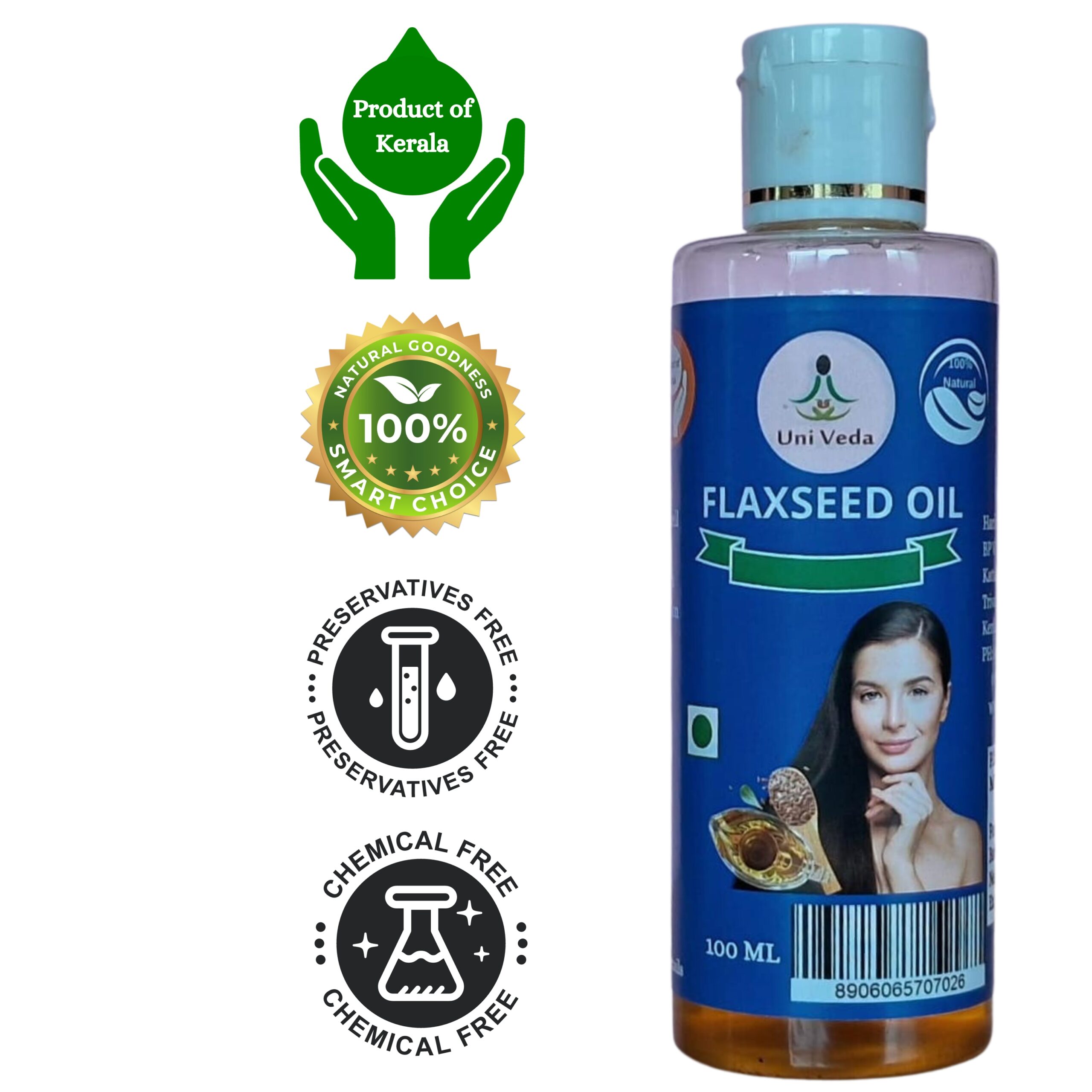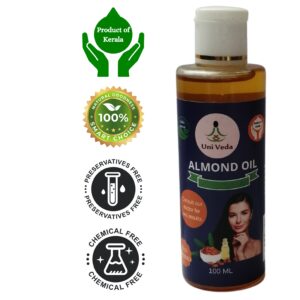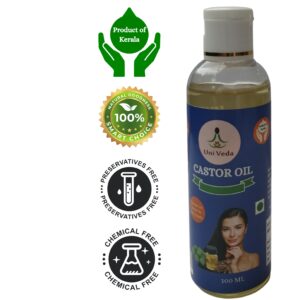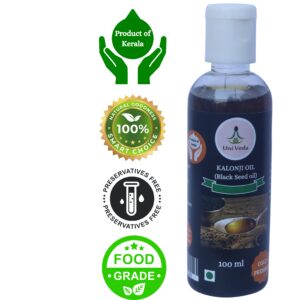OVERVIEW
Flax seed oil, alternatively referred to as linseed oil, is an unadulterated oil extracted from the seeds of the flax plant (scientifically known as Linum usitatissimum). It is widely recognized for its impressive nutritional profile and potential health benefits. The oil is extracted from the seeds through a cold-pressing process, ensuring that its valuable nutrients remain intact.
Flax seed oil is highly regarded for its rich content of omega-3 fatty acids, particularly alpha-linolenic acid (ALA). Omega-3 fatty acids are essential fats that play a vital role in supporting overall health and well-being. They are known for their potential to reduce inflammation, support heart health, and promote brain function.
In addition to omega-3 fatty acids, flax seed oil contains other essential fatty acids, including omega-6 fatty acids, which are beneficial for the body. It is also a source of vitamin E, an antioxidant that helps protect cells from oxidative damage.
Flax seed oil has gained popularity as a nutritional supplement and ingredient in various culinary applications. It is often used as a dietary supplement to enhance the intake of essential fatty acids, especially for individuals who may not consume sufficient amounts through their regular diet. The oil is commonly added to smoothies, salad dressings, and other dishes to boost their nutritional value.
Due to its potential health benefits, flax seed oil has also been explored for its use in skincare and hair care. It is believed to moisturize the skin, improve skin elasticity, and promote a healthy scalp and hair.
However, it is important to note that flax seed oil should be stored properly to maintain its freshness and prevent oxidation. It is recommended to store the oil in a cool, dark place and consume it within the recommended expiration date.
Overall, flax seed oil is a nutrient-dense oil that offers a range of potential health benefits. Its high content of omega-3 fatty acids and other valuable compounds makes it a valuable addition to a balanced and healthy lifestyle.
BENEFITS
Benefits of Flax Seed Oil
1. Rich Source of Omega-3 Fatty Acids
Flax seed oil is one of the best plant-based sources of omega-3 fatty acids, specifically alpha-linolenic acid (ALA). Omega-3 fatty acids are indispensable nutrients that fulfill a vital function in preserving holistic well-being. They support heart health, help reduce inflammation, promote brain function, and contribute to healthy skin.
2. Supports Heart Health
The omega-3 fatty acids found in flax seed oil have been shown to have positive effects on heart health. They can help lower blood pressure, reduce LDL (bad) cholesterol levels, and decrease the risk of cardiovascular diseases.
3. Anti-Inflammatory Properties
Flax seed oil possesses anti-inflammatory properties, thanks to its omega-3 fatty acids. It may help reduce inflammation in the body, which is beneficial for conditions such as arthritis and inflammatory bowel disease.
4. Promotes Healthy Skin
The omega-3 fatty acids and antioxidants present in flax seed oil contribute to healthy skin. They help moisturize the skin, improve elasticity, and reduce signs of aging. Regular consumption of flax seed oil can result in a radiant and youthful complexion.
5. Supports Hair Health
Flax seed oil can also benefit hair health. The omega-3 fatty acids nourish the hair follicles, promote hair growth, and help prevent dryness and breakage. It can be used topically or consumed orally for improved hair health.
INGREDIENTS
The primary ingredient of the flax seed oil is the oil extracted from the seeds of the flax plant (Linum usitatissimum). Flax seed oil is composed mainly of fatty acids, including omega-3 fatty acids such as alpha-linolenic acid (ALA), as well as omega-6 fatty acids and other beneficial compounds. It may also contain trace amounts of vitamins and antioxidants.
GUIDE
Using Flax Seed Oil on the Body and Hair
Body Use:
Internal Consumption: Flax seed oil can be consumed orally as a dietary supplement. It is available in liquid form or as soft gel capsules. Follow the recommended dosage provided by the manufacturer or consult a healthcare professional for personalized guidance.
Salad Dressings and Smoothies: Add flax seed oil to your salads or blend it into your favorite smoothies for an extra nutritional boost. It has a nutty flavor that pairs well with various dishes.
Hair Use:
Topical Application: Apply a small amount of flax seed oil to your palms and massage it into your scalp. Gently work the oil through your hair, paying attention to the ends. Allow the product to remain on your hair for a minimum of 30 minutes or leave it overnight to experience the nourishing benefits of deep conditioning. Wash your hair thoroughly with a mild shampoo afterward.
DIY Hair Masks: Combine flax seed oil with other natural ingredients like honey, yogurt, or aloe vera gel to create nourishing hair masks. Apply the mask to your hair and scalp, leave it on for 30 minutes to an hour, then rinse thoroughly.
Frequently Asked Questions (FAQs)
FAQ 1: Can I take flax seed oil supplements if I have a seafood allergy?
Yes, flax seed oil supplements are a suitable alternative for individuals with seafood allergies. Flax seed oil is plant-based and does not contain the allergens present in seafood. However, if you have any concerns, it is advisable to consult with a healthcare professional before starting any new supplement.
FAQ 2: How much flax seed oil should I consume daily?
The recommended dosage of flax seed oil may vary depending on individual needs and health conditions. It is generally recommended to start with 1-2 tablespoons per day. Nevertheless, it is crucial to seek guidance from a qualified healthcare professional to ascertain the suitable dosage that aligns with your circumstances.
FAQ 3: Can I use flaxseed oil on my face?
While flax seed oil is safe for external use, it may not be suitable for everyone’s facial skin. It is advisable to perform a patch test before applying it to your face and observe how your skin reacts. In the event of experiencing any signs of irritation or discomfort, it is advisable to cease usage and seek advice from a dermatologist promptly.
FAQ 4: Can flax seed oil help with weight loss?
While flax seed oil is rich in healthy fats, it is important to note that it is also high in calories. Hence, it is recommended to incorporate flax seed oil into your diet in moderate amounts as a component of a well-balanced eating plan. Flax seed oil alone is not a guaranteed weight loss solution, but it can be a beneficial addition to a healthy lifestyle.
FAQ 5: Where can I purchase flax seed oil?
Authentic castor oil products are available for purchase exclusively on our online store.
Incorporating flax seed oil into your daily routine can provide numerous health benefits for your body and enhance the health and appearance of your hair. Enjoy the goodness of flax seed oil and embrace a healthier lifestyle!









Reviews
There are no reviews yet.